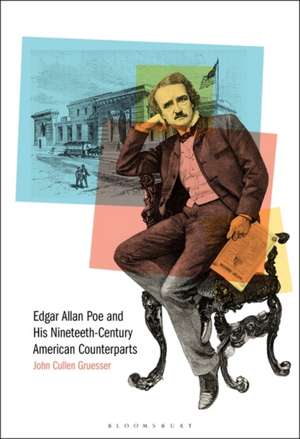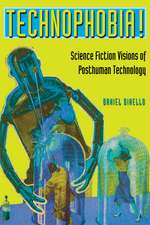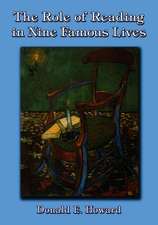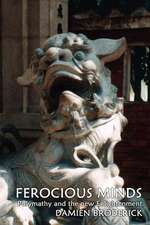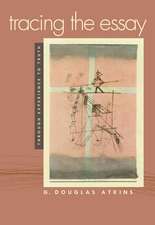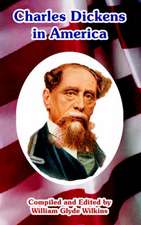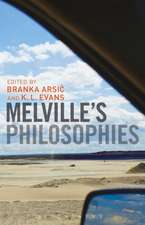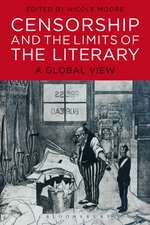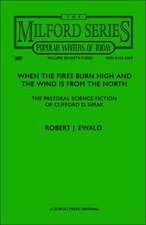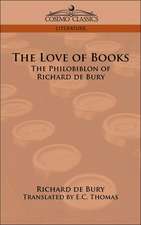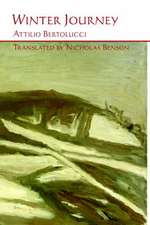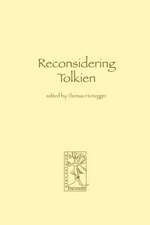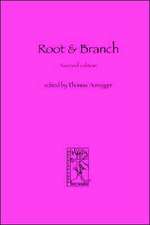Edgar Allan Poe and His Nineteenth-Century American Counterparts
Autor Prof John Cullen Gruesseren Limba Engleză Hardback – 23 ian 2019
| Toate formatele și edițiile | Preț | Express |
|---|---|---|
| Paperback (1) | 222.27 lei 6-8 săpt. | |
| Bloomsbury Publishing – 22 iul 2020 | 222.27 lei 6-8 săpt. | |
| Hardback (1) | 567.17 lei 6-8 săpt. | |
| Bloomsbury Publishing – 23 ian 2019 | 567.17 lei 6-8 săpt. |
Preț: 567.17 lei
Preț vechi: 815.00 lei
-30% Nou
Puncte Express: 851
Preț estimativ în valută:
108.56€ • 117.96$ • 91.25£
108.56€ • 117.96$ • 91.25£
Carte tipărită la comandă
Livrare economică 21 aprilie-05 mai
Preluare comenzi: 021 569.72.76
Specificații
ISBN-13: 9781501334528
ISBN-10: 1501334522
Pagini: 184
Dimensiuni: 152 x 229 mm
Greutate: 0.41 kg
Editura: Bloomsbury Publishing
Colecția Bloomsbury Academic
Locul publicării:New York, United States
ISBN-10: 1501334522
Pagini: 184
Dimensiuni: 152 x 229 mm
Greutate: 0.41 kg
Editura: Bloomsbury Publishing
Colecția Bloomsbury Academic
Locul publicării:New York, United States
Caracteristici
Contextualized readings of some of Poe's lesser-known works, including his critical writings about Nathaniel Hawthorne and his two series about New York City, Doings in Gotham and The Literati of New York City
Notă biografică
John Cullen Gruesser is Senior Research Scholar of Literary Studies at Sam Houston State University, USA. He is the author or editor of ten books and a past President of the Poe Studies Association.
Cuprins
Introduction: Dreams and Mystifications of PoePart I: The Quixotic Quest for Literary Fame, Financial Stability, and a Republic of Letters in Antebellum America1: Poor Edgar's Almanac: E. A. Poe's Money Woes 2: Outside Looking In: Poe and New York City3: Eddy P., the Scrivener: Biography and Autobiography in Herman Melville's "Story of Wall-Street"Part II: The Competition in Cunning: Ramifications of and Responses to Poe's Ratiocinative Tales4: Character Rivalry, Authorial Sleight-of-Hand, and Generic Fluidity in the Dupin Trilogy 5: Varieties of Detection in Nathaniel Hawthorne's The Scarlet Letter, Walt Whitman's Life and Adventures of Jack Engle, Herman Melville's Benito Cereno, and Mark Twain's "The Stolen White Elephant"6: Madness, Mystification, and "Average Racism" in "The Gold-Bug," E. D. E. N. Southworth's The Hidden Hand, Harriet Jacobs's Incidents in the Life of a Slave Girl, and Pauline Hopkins's Hagar's DaughterCoda: "A Crime of Dark Dye": Misreading Poe's CriticismNotesIndex
Recenzii
A smart, crisply written, and engaging study . The book will be useful not just for students of Poe and nineteenth-century publishing but also for teachers looking to weave Poe into their US literature offerings in news ways . Gruesser shows how central he was to a striking variety of writers publishing in the decades after his death.
[The] pieces collected here raise intriguing possibilities for understandings of Poe's connections to other American writers, his position in antebellum print culture, and his influence upon both his contemporaries and subsequent authors . Gruesser's new book offers a solid contribution to the body of Poe scholarship . The Poe that Gruesser offers his readers is one who is very much a part of his world, actively engaged in and profoundly influential on American literary culture in the nineteenth century.
[I]t contributes to debunking some of the more popular myths about Poe's life and literary achievement in a manner accessible even to readers who have no more than a passing familiarity with Poe's work . Gruesser's book counters misconceptions by presenting a series of original contributions to scholarship that are at once granular and important . Gruesser then makes an original, persuasive connection between the rhetorical persona Poe fashions in [his] editorials and those he creates with his tales . Gruesser's book is potentially of use and interest to all scholars and students of, as well as informed readers with an avid interest in, Poe and nineteenth-century American literature.
In the crowded field of Poe criticism, John Cullen Gruesser stands out for the range, erudition, and accessibility of his work. By charting Poe's place in American literary culture while also dispelling myths about him and his work, this book captures perfectly the qualities that make Poe both unique and simultaneously representative of his times.
Edgar Allan Poe and His Nineteenth-Century American Counterparts is a meticulous work of scholarship that expands our knowledge of Poe's place in our literary tradition. Drawing on his remarkable command of Poe scholarship, John Cullen Gruesser rescues the author from the process of mystification that still hangs around him. He reveals new connections to Hawthorne, Melville, and Twain and such lesser known figures as Joel Tyler Headley and Mrs. E.D.E.N. Southworth. His exploration of the ways in which Poe not only invents but continuously reinvents crime fiction into a richly metafictional form capable of confronting racial and political ideologies is both perceptive and persuasive.
John Gruesser always writes with passion and purpose, and his Edgar Allan Poe and his Nineteenth-Century American Counterparts illuminates two key facets of Poe's career: his preoccupation with exposing the secret practices of antebellum American literary culture and his invention of the alluring paradigm for detective fiction. In the process, Gruesser creates a vivid narrative of Poe's entanglements with other literary lives, especially with such counterparts as Melville, Hawthorne, Fuller, Whitman, and Willis. But he also suggests the irresistibility of the 'ratiocinative' tale and its repurposing by such unlikely figures as Twain, Southworth, Jacobs, and Hopkins. These linked essays connect Poe to a broader culture and a longer historical moment; they also bring into sharper focus Poe's twin penchants for mystification and revelation.
[The] pieces collected here raise intriguing possibilities for understandings of Poe's connections to other American writers, his position in antebellum print culture, and his influence upon both his contemporaries and subsequent authors . Gruesser's new book offers a solid contribution to the body of Poe scholarship . The Poe that Gruesser offers his readers is one who is very much a part of his world, actively engaged in and profoundly influential on American literary culture in the nineteenth century.
[I]t contributes to debunking some of the more popular myths about Poe's life and literary achievement in a manner accessible even to readers who have no more than a passing familiarity with Poe's work . Gruesser's book counters misconceptions by presenting a series of original contributions to scholarship that are at once granular and important . Gruesser then makes an original, persuasive connection between the rhetorical persona Poe fashions in [his] editorials and those he creates with his tales . Gruesser's book is potentially of use and interest to all scholars and students of, as well as informed readers with an avid interest in, Poe and nineteenth-century American literature.
In the crowded field of Poe criticism, John Cullen Gruesser stands out for the range, erudition, and accessibility of his work. By charting Poe's place in American literary culture while also dispelling myths about him and his work, this book captures perfectly the qualities that make Poe both unique and simultaneously representative of his times.
Edgar Allan Poe and His Nineteenth-Century American Counterparts is a meticulous work of scholarship that expands our knowledge of Poe's place in our literary tradition. Drawing on his remarkable command of Poe scholarship, John Cullen Gruesser rescues the author from the process of mystification that still hangs around him. He reveals new connections to Hawthorne, Melville, and Twain and such lesser known figures as Joel Tyler Headley and Mrs. E.D.E.N. Southworth. His exploration of the ways in which Poe not only invents but continuously reinvents crime fiction into a richly metafictional form capable of confronting racial and political ideologies is both perceptive and persuasive.
John Gruesser always writes with passion and purpose, and his Edgar Allan Poe and his Nineteenth-Century American Counterparts illuminates two key facets of Poe's career: his preoccupation with exposing the secret practices of antebellum American literary culture and his invention of the alluring paradigm for detective fiction. In the process, Gruesser creates a vivid narrative of Poe's entanglements with other literary lives, especially with such counterparts as Melville, Hawthorne, Fuller, Whitman, and Willis. But he also suggests the irresistibility of the 'ratiocinative' tale and its repurposing by such unlikely figures as Twain, Southworth, Jacobs, and Hopkins. These linked essays connect Poe to a broader culture and a longer historical moment; they also bring into sharper focus Poe's twin penchants for mystification and revelation.
